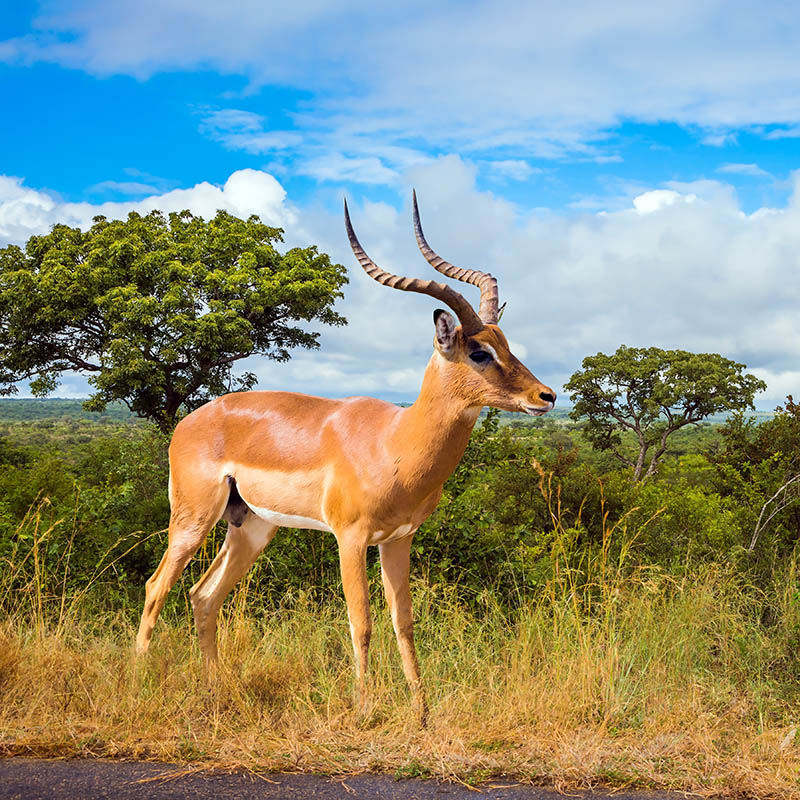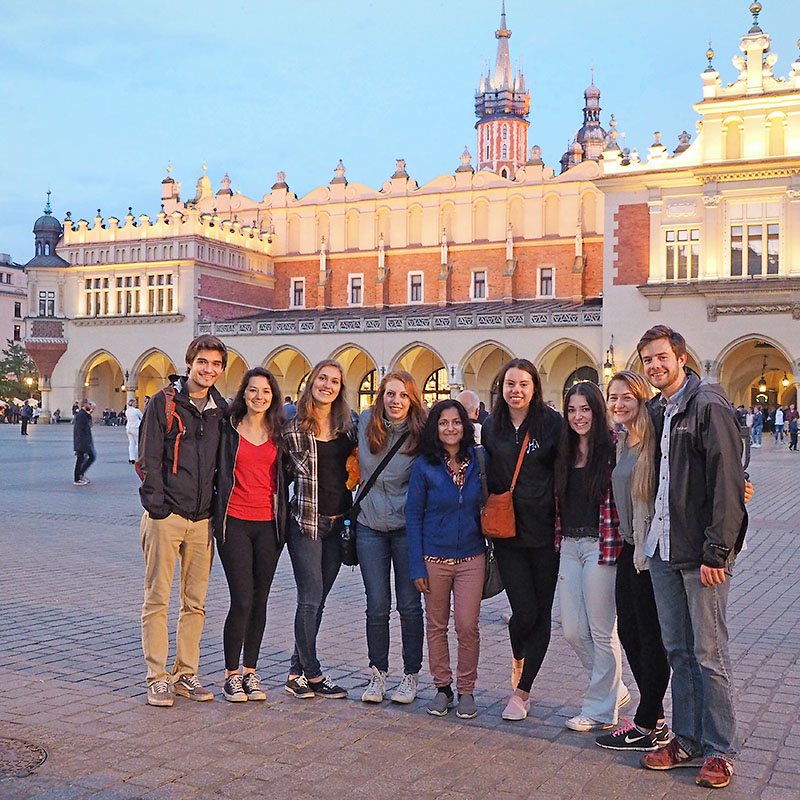Faculty-Directed Programs

Faculty-directed global engagement programs foster a global mindset that’s instrumental in preparing students to develop as global citizens.
Many Opportunities
These experiences help students rise to the opportunities and challenges faced by the worldwide community.
While in a faculty-directed program, students study and intern off the Clemson campus — often abroad — in a variety of locations under guidance of College of Science faculty, while gaining credit toward their degrees.
Faculty-directed programs typically range from two to five weeks and allow students to apply in-state tuition and fees to their travel. By being aligned with college priorities, these opportunities complement the student’s degree.
Students can also gain Clemson University credit for Clemson faculty-directed programs.
Explore Programs

Australian Ecology
- Contact: Caleb McGill
- Program Director: Virginia Abernathy
- Course Credit: BIOL 4490/4491 Field Ecology and Lab (4 credits)
This course will focus on Australian ecology and conservation and will include immersive educational experiences abroad in Queensland, Australia, ecological sampling techniques in various ecosystems and biological inquiry, such as conducting experiments, data collection, statistical analysis of data and scientific writing and presentation of data. The travel portion of the program will take place 2½ weeks prior to the typical fall semester starting.

Tropical Ecology and Field Research in Costa Rica
- Contact: Caleb McGill
- Program Directors: Kelly Willemssens
- Course Credit: BIOL 4490/4491 (4 credits)
Learn about biological field techniques while immersing yourself in one of the most biodiverse areas on our planet. Coursework will focus on studying ecological principles or primate behavior while collecting data on various habitats and organisms such as spider monkeys, tapirs, toucans, red-eyed tree frogs, howler monkeys and many others.
- View the Costa Rica program page

Global Experiences in Health Professions
- Contact: Caleb McGill
- Program Directors: Harolynn Williams and Caleb McGill
- Course Credit: HPA 2010 (1 credit)
This experiential learning program affords students interested in health care careers opportunities to engage in global learning experiences, social literacy training and ethics training, and to understand how health is shaped across different contexts and populations.
- View the Global Experiences program page

Mammalian Ecology of South Africa
- Contact: Caleb McGill
- Program Director: John Cummings
- Course Credit: BIOL 4490/4491 Field Ecology and Lab (4 credits)
This is a unique and rare opportunity for students who want to immerse themselves in fieldwork and learn field techniques. Students will spend two weeks applying various field techniques to study the unique conditions, both natural and manmade, that create the distribution and ecology of the mammalian fauna of South Africa. One week will be devoted to land mammals, and the other week will be devoted to marine species.
- View the South Africa program page

Microbial Pathogenesis in Poland
- Contact: Caleb McGill
- Program Director: Lukasz Kozubowski
- Course Credit: MICR 3050/3051, GEN/BCHM 4900, STS 1010
Master basic knowledge of microbiological science, get hands-on lab experience and learn about the history of Eastern Europe and how the events of World War II influenced medical science. This program takes place in Wroclaw, a major science and cultural center of Poland and a key city in the development of medical science and microbiology during and after the war.
- View the Poland program page

Modeling Methods and
Logistics Applications in France
- Contact: Caleb McGill
- Program Director: Kevin Taaffe
- Course Credit: MATH 4400 or IE 4570 plus IS 2100 (6 credits total)
This program will focus on transportation, logistics and health care, and the fundamentals of mathematical modeling and how modeling is used to solve these complex issues. Students will visit French businesses and organizations in transportation, logistics, and healthcare, as well as having guest lectures or panel sessions with industry professionals as well as faculty from University of Clermont Auvergne.
- View the France program page

Vertebrate Ecology of the Dolomites (Italian Alps)
- Contact: Caleb McGill
- Program Director: John Cummings
- Course Credit: BIOL 4490/4491 Field Ecology and Lab (4 credits)
Students will spend two weeks applying various field techniques to study the unique conditions, both natural and manmade, that create the distribution and ecology of the vertebrate fauna of the Dolomites (the Italian Alps). Species to be investigated (all in their natural habitat) include, but are not limited to amphibians, birds, small mammals, bats, alpine brown bear and alpine ibex. In addition to field work, students will explore the historical and cultural significance of Venice and Milan, Italy.
Plan Your Study Abroad Program
Studying abroad requires careful planning to ensure that you receive all the credits you need by your anticipated graduation date. For example, you may have to take prerequisite courses or reorder some courses to free up classes to be taken abroad. You may need to consider how to finance your experience abroad. We are here to help you get to your destination and goal. Make an appointment with the College of Science Global Engagement team at the beginning of your planning process, and we’ll assist you with choosing a program, filling out applications and preparing for your time abroad.
- Step 1: Explore program options using the Pam Hendrix Center for Education Abroad approved programs list and complete the Study Abroad 101 Training and Advising Form.
- Step 2: Schedule an appointment with the Science Global Engagement team via CU Navigate by selecting “Study Abroad” as your care unit. You can also email the College of Science Assistant Director of Global Engagement, Caleb McGill, at jmcgil2@clemson.edu to set up a meeting and discuss the study abroad process, program options, potential coursework, how credit transfer works and anything else you'd like to ask about study abroad.
- Step 3: Once you have narrowed down your program options and know potential coursework you can take at each program, meet with your academic advisor to confirm that your desired coursework fits into your degree plan and meets necessary requirements.
- Step 4: Once you’ve found the ideal program, it’s time to apply and ensure your courses have been approved for credit transfer. Reach out to the Science Global Engagement team as needed for assistance with this process.
